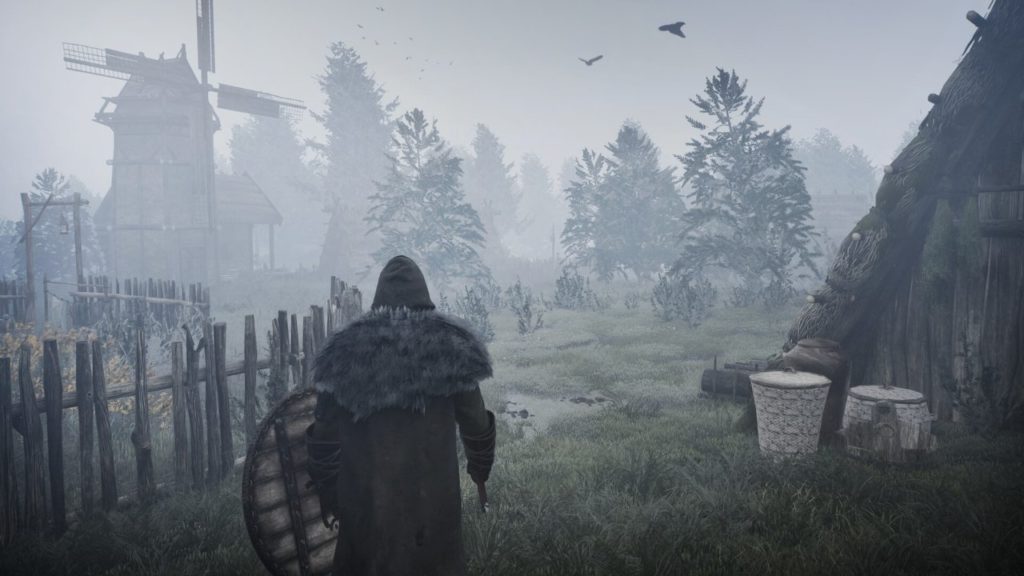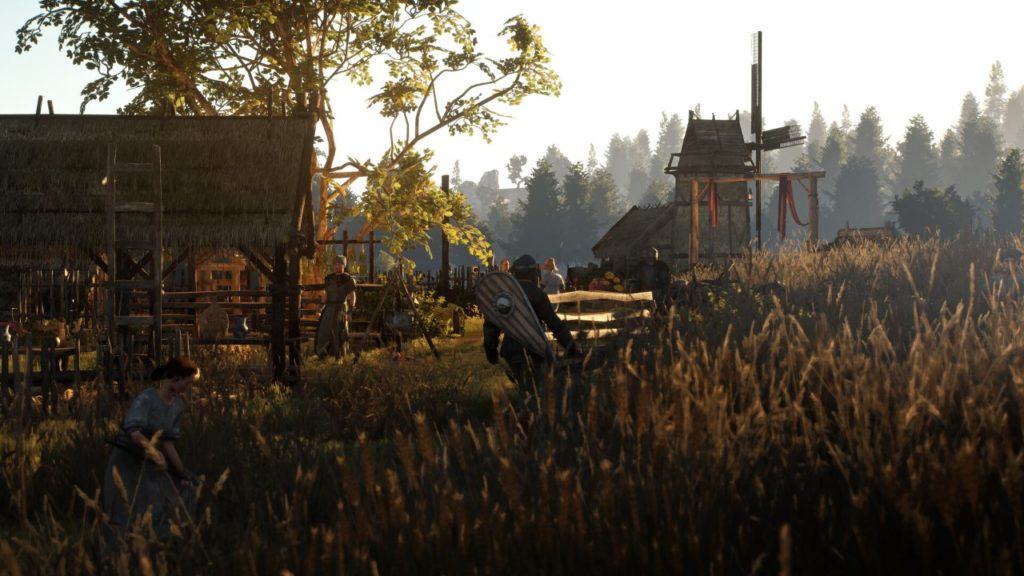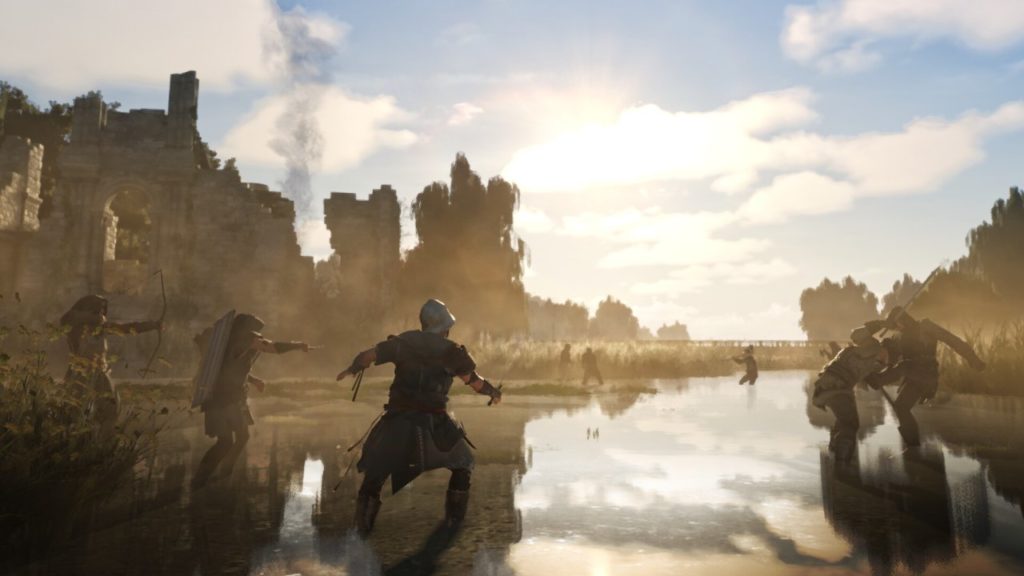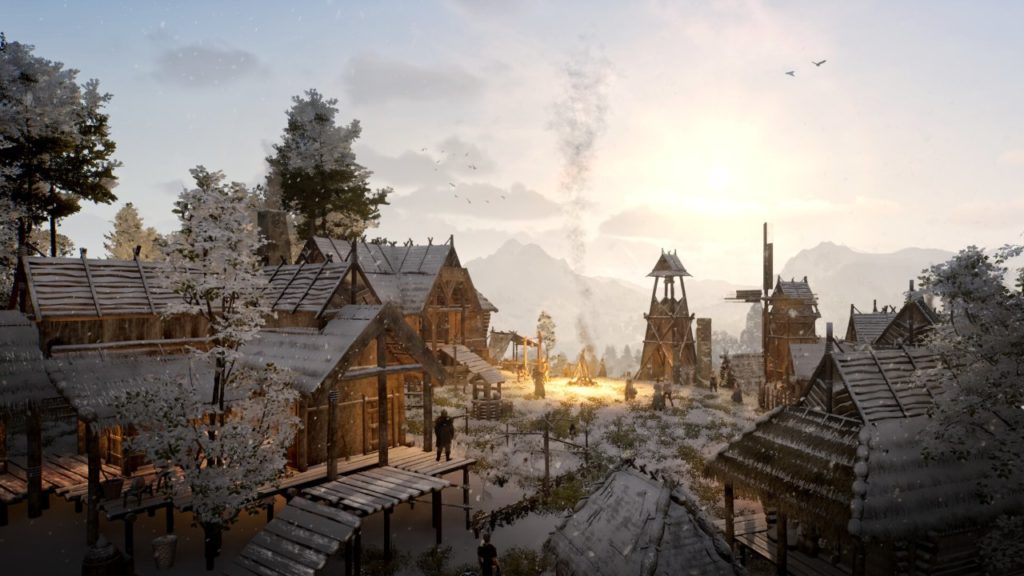Bellwright has some good ideas, but needs work to stand out | Early access impressions
The first few hours of Donkey Crew’s Medieval survival-crafter-city-builder, Bellwright, are pretty brutal – and I’m not talking about the difficulty. Walking on the outskirts of a small village after being accused of murdering the Prince and narrowly escaping the authorities, you find yourself unwelcome and distrusted by the locals. You’re told you can pitch a small shelter a safe distance away, but you’ll need to work hard to earn the trust of the village headsman.
What follows is a couple of hours of fairly uninteresting resource gathering as you pluck flax flowers and pick up sticks. Even when you have your shelter up, it doesn’t pick up, as you soon start needing logs. I never thought a game would make me dislike such a simple thing as an inert lump of wood, but Bellwright got pretty close here. After crafting an axe you can start chopping trees, which is fine if tedious, but then the logs take up so much space in your inventory that you’ll only be able to carry a few at a time – if you’re lucky.

It means a lot of walking back and forth between your shelter and the trees, gathering what you need. Initially the building is also arduous, as you must gather materials and then manually add each piece to the template you’ve set down. With anything bigger than a storage chest or campfire, this takes a while. But like almost everything in Bellwright, it’s because you’re not supposed to do it alone.
While the main thrust of the narrative is getting your revenge and clearing your name at the spearhead of a rebellion, there’s a long way to go before you get to that point – and you’ll need allies if you’re going to succeed. It starts with the village, gathering pelts and chasing off wolves for them, and pretty soon you’ll meet your first NPC companion.
It’s a hunter who’ll join you once you build him a shelter and a research desk. After that he’ll follow you, and you can assign him one of three roles: Worker, Companion, or Guard. The last one is simple enough: arm the NPC in question and they’ll patrol the area around your little camp, slaying anything that looks at them funny. The Companion will travel alongside you, and can carry things for you or be directed to complete tasks, such as harvesting or fighting for you. And the Worker will do just that, finishing jobs you leave running at the workbench or research desk.

The more NPC followers you have, the more you can build and operate, including things like logging camps and foraging huts. It’s like Manor Lords in 3rd person, and before long the pace starts to pick up a little. You’ll soon have a band of followers you can take with you, as your little settlement gets bigger and more self-sufficient. You’ll craft armour and teach them new techniques, and you’ll need to. The more prominent your settlement becomes, the more attention it will attract, and it’s rarely good.
Although the pace increases and the building element becomes easier as you recruit more people, it takes a long, long time to get beyond a few paltry followers, and in the meantime, you’ll be doing a lot of busy work yourself. This is all well and good, until it comes to combat. I really, really cannot gel with the combat in Bellwright. You essentially slash away at your enemy and can move the mouse to control the direction of your swing. It’s a system that should work and has done elsewhere, but in Bellwright it’s slidey, imprecise, and devoid of satisfying impact. It’s a clunky system that needs a lot of work – but then, that’s what early access is for.

Worse still is the ranged combat, which takes some serious getting used to. Using a bow and arrow in Bellwright is like throwing something at a target with your eyes closed, and whether you hit a distant animal or not seems to be decided entirely by chance. Again, this is something that will likely improve over time, but given Donkey Crew is comprised of several Mount & Blade II: Bannerlord modders I’d expect the combat to be a little more polished even at this stage.
One thing I do like is how the hunger meter works. You can forage or hunt for berries, mushrooms, fish or meat, and once you have a campfire you can cook food to extend its lifespan and increase its benefit. You have three food slots which must each contain a different food, and for each one you have filled you’ll receive a boost to health and stamina. Running out won’t kill you (I think), but if your followers get too hungry they might bugger off and feed themselves, so be sure to provide.

Right now, Bellwright is mostly “just fine”. The community element is likely to be its biggest selling point, and it’s already showing signs of promise. You’ll come to rely on your followers as much as they rely on you, and the path to rebellion will be forged through friendship and cooperation (which is also an option if you want to engage with the multiplayer and rope in your friends to help you build).
Sadly, though, it’s let down at the moment by unsatisfying combat, a drawn-out opening, and tedious resource gathering. It’s also really not very good-looking, with feathery textures everywhere and a generally bland, generic aesthetic that does nothing exciting with the open countryside. There’s time for Donkey Crew to build on the positives that Bellwright already has, though, and I’m interested to see how it improves throughout the early access period.
Bellwright is developed by Donkey Crew, and currently available in Steam early access for £24.99.





